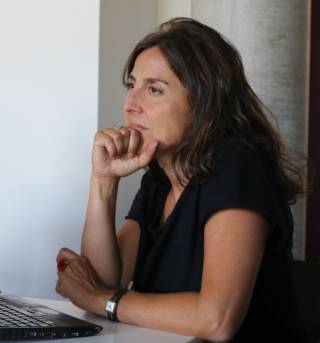Irene Becci holds a PhD in social and political sciences from the European University Institute. Since 2012, she has been professor at the Institute for the Social Scientific Study of Contemporary Religion at the University of Lausanne. She has studied in Lausanne, Rome, Florence and New York, and has worked in Germany, at the Max-Planck Institute for Social Anthropology in Halle/S., Bielefeld and Potsdam University. Her research focuses on religious diversity and new spiritual practices in particular settings, such as total institutions, and post-socialist urban spaces or ecological activism.
At the Institute of Advanced Studies, UCL, she is working on the transition between finishing her project ‘Towards a "spiritualisation" of ecology? A sociological analysis of new forms of mediations of ecological questions’, which focused on Switzerland, to her new project ‘Caring for Urban Nature. Sustainability between Enchantment and Commodification’, which includes transnational and postcolonial dimensions. Focusing on the study of ecological activism in contemporary cities, her project aims at exploring the ways in which ‘urban nature’ becomes enchanted by civil and institutional action and the implications that such enchantment has with regard to sustainability. Be it when parks are used for ecological festivals and roofs are greened through guerilla gardening actions or when trees are defended against construction plans aiming to eliminate them, urban nature is a source of enchantment. Such practices have gained in number, intensity and meaning with the increasing attention paid to environmental concerns. Considering the crucial importance of current urbanisation, it is essential to understand how city dwellers’ worldviews are changing with regard to urban nature and what this implies in terms of the narrative about the causes and remedies of the current environmental shift. While some areas have been delimited in cities and preserved as wild nature, other urban green areas are less valued and often hold a provisional status subject to being revoked for construction projects. By studying cases in contrasting yet connected cities, this project seeks to shed light on such changes and to assess their potentials for sustainability projects.
 Close
Close


